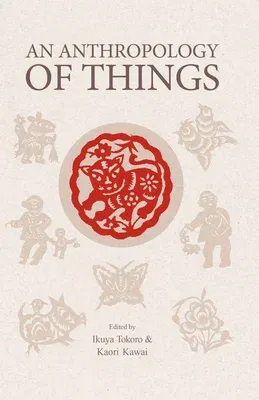An Anthropology of ThingsPaperback, 12 February 2021

Qty
1
Turbo
Ships in 2 - 3 days
In Stock
Free Delivery
Cash on Delivery
15 Days
Free Returns
Secure Checkout

Print Length
420 pages
Language
English
Publisher
Trans Pacific Press
Date Published
12 Feb 2021
ISBN-10
1920901736
ISBN-13
9781920901738
Description
Product Details
Book Format:
Paperback
Country of Origin:
US
Date Published:
12 February 2021
Dimensions:
22.86 x
15.24 x
2.18 cm
ISBN-10:
1920901736
ISBN-13:
9781920901738
Language:
English
Pages:
420
Publisher:
Weight:
562.45 gm